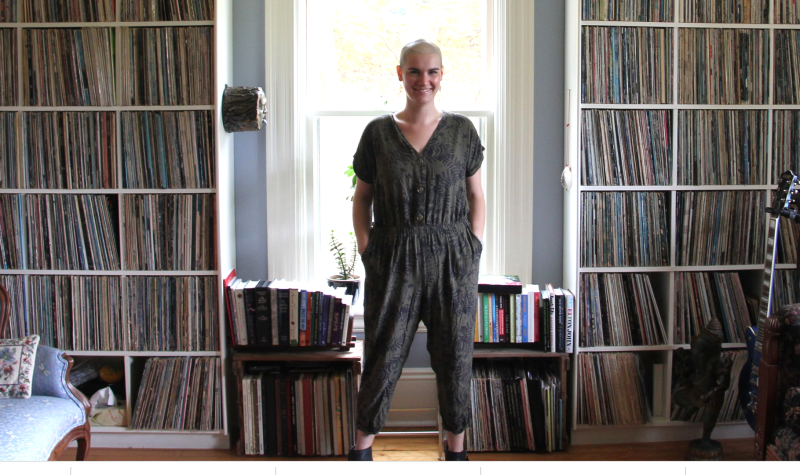Through personalized songs, a music therapist and songwriter from Nova Scotia started The Legacy Song Project as a way for people to feel connected to those approaching end of life, or for those who have lost their loved ones.
Sarah McInnis was inspired to start this project after her grandmother passed away four years ago.
“She passed away in 2018 and she was 101 when she died; she also loved music so we connected with music in ways that maybe we couldn't have connected otherwise.”
Starting the project in April 2021, she has since produced 10 songs last year across British Columbia, Ontario and Nova Scotia. This year, she has written two songs for clients in Ontario and New Brunswick.
McInnis knew she wanted to work in palliative care and so she decided to start her end-of-life doula training when the pandemic started.
“An end of life doula essentially accompanies a person who is making their journey towards death and just providing them with support, making difficult decisions and acting as a mitigator between family members and doctors.”
McInnis said she wanted to work in a field where she would be able to speak openly about death without it feeling “taboo”.
“People sometimes use the term someone ‘passed on,’ which is circumventing what is happening. It is so taboo, and people want to talk about death, they just don't want to be seen as morbid.”
One of her first clients was a friend she knew for about 13 years while attending undergrad studies at Trent University.
Meghan Labron, from Prince George B.C., lost her father when she was only 13 years old.

A photo of Labron's father was taken at halfway point the day he died on October 17, 2004, during a Toronto marathon. Photo contributed.
“He was running the Toronto half marathon in 2004 and about a kilometer or two from the finish line, he collapsed. He was taken to the hospital but they weren’t able to revive him. They never figured out why.”
Starting in the early days of the project, McInnis interviewed Labron and set up a few personal questions for her to answer during a zoom meeting that ran about two hours.
After Labron shared her experience, McInnis gathered enough information to write and produce the song "Who We'll Be."
Labron said the title of the song and the main chorus is based on a quote from a poem, that was also put on her father’s headstone.
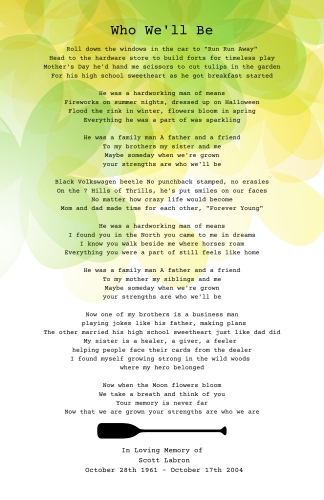
These are the lyrics of the song 'Who We'll Be' written by McInnis to honour Labron's father. Photo Contributed.
“The song that she wrote is just the most beautiful, I just think it's the most precious gift that you can give a person.”
The oldest of her four siblings, and only eight when he passed away, Labron said the ordeal was traumatic.
“We were all there cheering him on and waiting at the finish line. It was really sudden and really traumatic but he was doing something that he loved when it happened.”
Labron shared one of her favorite lines from the song.
“I found you in the north you came to me in dreams, I know you walk beside me where horses roam, everything you are a part of still feels like home.”
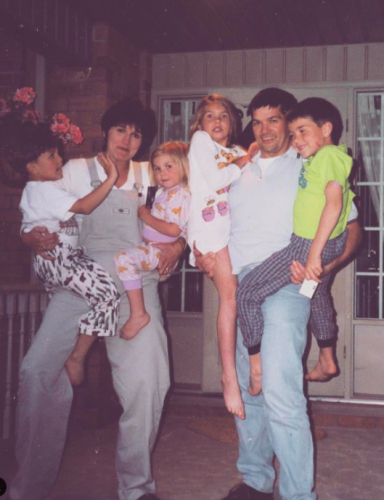
Meghan Labron is seen with both her parents and her siblings before her father passed away. Photo contributed.
Like Labron, another individual who said the song made just the perfect gift, is Karen Glen from Ontario.
11 years ago, Glen’s husband died after they were pursuing a long-life adventure of theirs of living on a sailboat and sailing around the world.
“We'd sold our house and everything that we owned and bought this crazy little sailboat. Unfortunately, three months after we bought the boat, he died very suddenly.”
The cause of death was an arterial rupture to the heart and he died instantly.
Glen later went to France, where her husband was from to grieve. She ended up living there for seven years.
“Through his death, I discovered hospice."
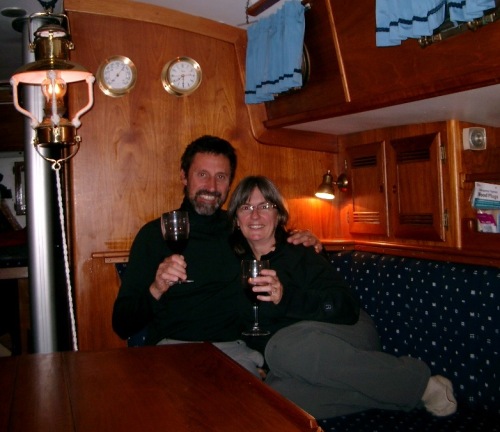
Glen had bought a sailboat with her husband Jean-Luc three months before he passed away. Photo contributed.
Glen took the training to become an end-of-life doula and one of the guest speakers at the monthly meetings was none other than Sarah McInnis.
“She was describing her program and the legacy song project and I immediately connected with her. I mean, it was 11 years since my husband died, but I never felt I really honored him.”
Glen later set up an online meeting with McInnis, and said that even before the song was written, just the two hours they spoke felt “cathartic”.
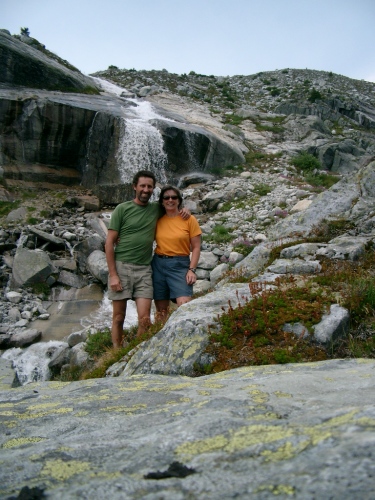
Glen said she and her husband enjoyed hiking and discovering new places. Photo contributed.
“She just captured our whole relationship, all the little nuances.”
The song "Heartbeat Wave" can be found on McInnis’s website. After helping people heal through their pain, and seeing the project was a success. McInnis started a subbranch project called the legacy song project Atlantic chapter which she is currently developing.
“So that's a sub branch. Now I’m quite honed in and focused on that, which will involve eight participants from the maritime provinces.”
She added that legacy work falls into both scopes of practice for Music Therapists and End of Life Doulas alike to honour a person close to death before they die.
“In some cases, it may involve music, or creating a book full of the person's favorite recipes, or creating a photo album. The sky is the limit really. That is another way that both fields come together in The Legacy Song Project.”
After the COVID-19 pandemic created isolation, McInnis’ said avenues like hers are important to have, to discuss death and dying and grief and loss which there has been much of over the last couple of years.
Listen to the interview below:


